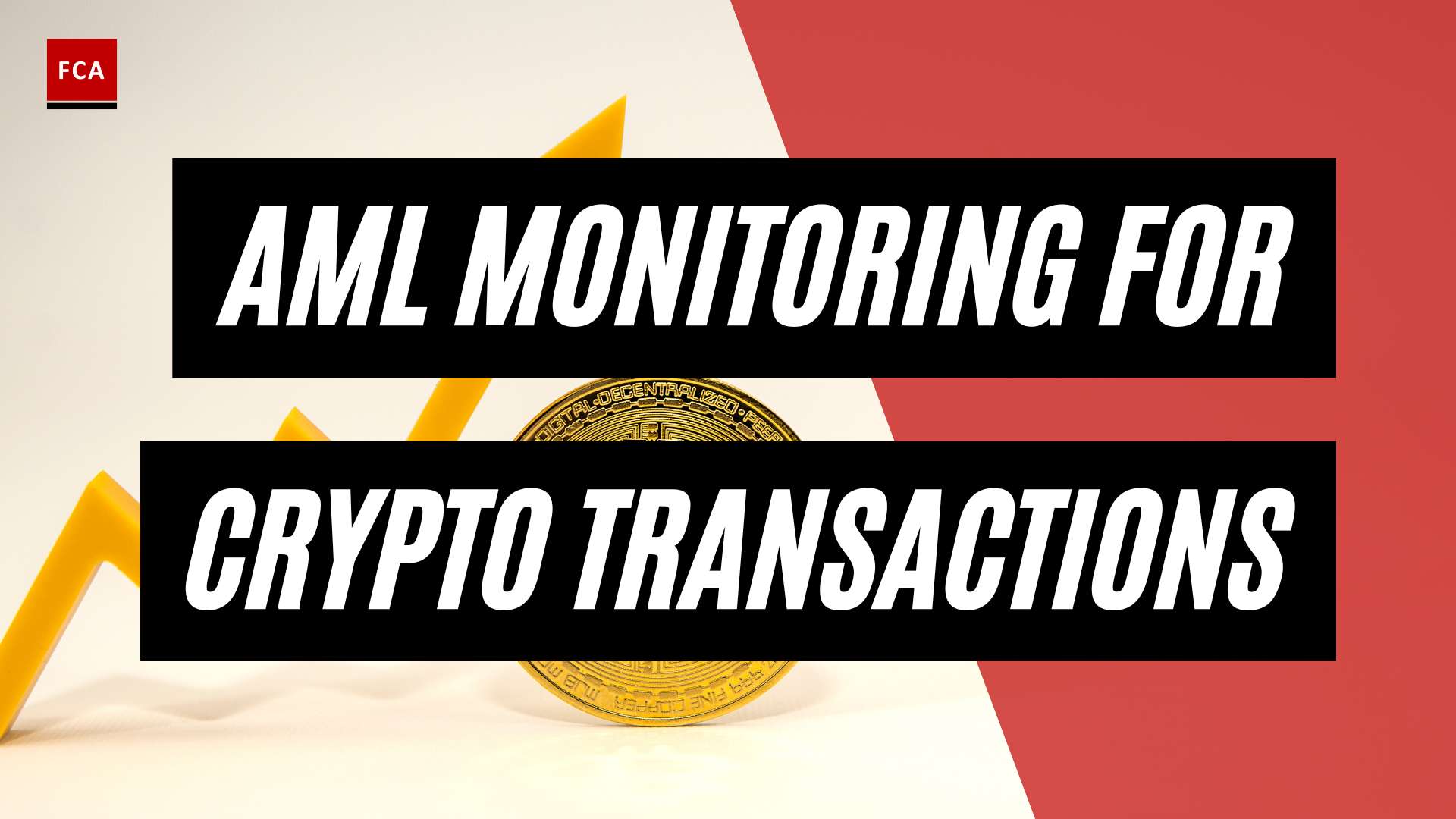The Importance of AML Skills
To excel in the field of Anti-Money Laundering (AML), professionals must possess a specific set of skills that are essential for navigating the complex AML landscape. These skills enable individuals to effectively detect and prevent money laundering activities, ensuring the integrity of financial systems. Understanding the importance of these skills is crucial for aspiring AML professionals.
Understanding the Anti-Money Laundering Landscape
The AML landscape encompasses various laws, regulations, and practices designed to combat money laundering and terrorist financing. AML professionals need a comprehensive understanding of this landscape in order to effectively fulfill their roles and responsibilities. They must be familiar with the anti-money laundering regulations and compliance requirements in their respective jurisdictions. This knowledge enables them to identify and report suspicious financial activities in accordance with regulatory guidelines and industry best practices.
Why AML Skills are in High Demand
The demand for AML skills has been steadily increasing due to several factors. First and foremost, the global financial system faces constant threats from money laundering and other illicit financial activities. Regulatory bodies and financial institutions are increasingly focused on preventing these activities, leading to a higher demand for skilled AML professionals.
Additionally, the evolving nature of money laundering techniques and the advancement of technology have made it necessary for AML professionals to continuously update their skills. Financial institutions are investing heavily in AML programs and are actively seeking professionals with the expertise to effectively mitigate risks and ensure compliance. AML skills have become a valuable asset in the job market, with opportunities for career growth and attractive remuneration.
By honing their AML skills and staying up-to-date with the latest industry developments, professionals can position themselves for success in this rapidly growing field. A strong foundation in AML skills, combined with a commitment to ongoing professional development, can open doors to diverse career opportunities within the AML sector.
For individuals aspiring to enter or advance in the AML field, it’s important to understand the core skills, technical skills, and soft skills necessary for success. In the following sections, we will explore these skills in detail and discuss how they contribute to a successful AML career.
Core Skills for AML Professionals
To thrive in the field of Anti-Money Laundering (AML), professionals need to possess a diverse set of skills. These core skills are essential for effectively combating financial crimes and ensuring compliance with regulations. In this section, we will explore three key skills that are crucial for AML professionals: knowledge of regulatory frameworks, analytical thinking and problem-solving skills, and attention to detail and accuracy.
Knowledge of Regulatory Frameworks
AML professionals must have a solid understanding of the regulatory frameworks that govern anti-money laundering efforts. This includes knowledge of local and international laws, regulations, and guidelines that aim to prevent money laundering and terrorist financing. Professionals need to stay updated with the latest changes in these regulations to ensure compliance and implement effective AML strategies.
Some of the key regulatory frameworks that AML professionals should be familiar with include the Financial Action Task Force (FATF) recommendations, local AML laws and regulations, and industry-specific guidelines. By having a comprehensive understanding of these frameworks, professionals can effectively identify and address potential money laundering risks.
Analytical Thinking and Problem-Solving Skills
Analytical thinking and problem-solving skills are essential for AML professionals to identify patterns, detect suspicious activities, and make informed decisions. AML investigations often involve analyzing vast amounts of complex financial data to uncover potential money laundering schemes. Professionals need to be able to connect the dots, spot irregularities, and identify potential red flags.
By leveraging their analytical skills, AML professionals can assess the risk levels associated with different transactions, entities, and jurisdictions. They need to think critically and creatively to develop strategies that can effectively mitigate these risks. Additionally, problem-solving skills are vital when it comes to addressing compliance issues, investigating alerts, and implementing preventive measures.
Attention to Detail and Accuracy
Attention to detail and accuracy are paramount in the field of AML. Professionals need to carefully review and analyze financial documents, transaction records, and other relevant information to ensure accuracy and identify potential money laundering activities. A single oversight or error could have significant consequences and may lead to regulatory non-compliance.
AML professionals must possess an innate ability to pay close attention to even the smallest details. They need to be meticulous in their work, ensuring that all information is thoroughly reviewed and verified. By maintaining a high level of accuracy and precision, professionals can effectively identify suspicious transactions and report them in accordance with applicable regulations.
Developing and honing these core skills is crucial for anyone pursuing a career in AML. However, it’s important to note that these skills are just the foundation. AML professionals should also strive to continuously enhance their expertise in areas such as data analysis, AML software proficiency, and reporting skills. By combining these core skills with additional competencies, professionals can make a significant impact in the fight against money laundering and contribute to a safer financial system.
Technical Skills for AML Professionals
To excel in an Anti-Money Laundering (AML) career, professionals must possess a range of technical skills that enable them to effectively navigate the complex landscape of financial crime prevention. Here are three key technical skills that are essential for AML professionals:
Data Analysis and Interpretation
Data analysis and interpretation skills are vital for AML professionals to effectively identify and investigate potential money laundering activities. AML analysts need to be proficient in analyzing large volumes of data, including financial transaction records, customer information, and other relevant data sources. They must be able to identify patterns, anomalies, and suspicious activities that may indicate potential money laundering or other financial crimes.
By utilizing various analytical techniques, such as data mining, pattern recognition, and statistical analysis, AML professionals can uncover hidden connections and trends within complex financial datasets. These skills enable them to identify potential risks, assess the likelihood of money laundering, and determine the appropriate actions to be taken.
Familiarity with AML Software and Tools
In today’s digital age, AML professionals must be familiar with the software and tools commonly used in the industry. AML software and tools help automate and streamline various AML processes, making it easier to detect and investigate potential money laundering activities.
Professionals in this field should have a working knowledge of commonly used AML software, such as transaction monitoring systems, case management systems, and risk assessment tools. They should be able to navigate these tools effectively, extract relevant information, and generate accurate reports.
It’s important for AML professionals to stay updated with the latest advancements in AML technology and software. Continuous learning and training can help them adapt to new tools and technologies that enhance their ability to combat money laundering effectively. For more information on AML software proficiency, refer to our article on aml software proficiency.
Understanding of Financial Transactions and Patterns
Having a solid understanding of financial transactions and patterns is crucial for AML professionals. They need to be familiar with various types of financial transactions, such as wire transfers, cash deposits, and electronic funds transfers. This knowledge allows them to identify unusual or suspicious activities that may indicate money laundering attempts.
AML professionals should be able to recognize red flags and indicators of potential money laundering, such as frequent large cash transactions, structuring of transactions to avoid reporting thresholds, or transactions involving high-risk jurisdictions. They must also understand the typologies and techniques used by money launderers to hide illicit funds within legitimate financial systems.
By combining their knowledge of financial transactions with their data analysis skills, AML professionals can effectively detect and investigate suspicious activities, contribute to risk assessments, and support the development of robust AML strategies.
In addition to these technical skills, AML professionals must also possess a range of soft skills and core skills that are essential for success in the field. The combination of technical expertise, analytical thinking, and effective communication skills enables AML professionals to effectively combat money laundering and contribute to the integrity of the financial system.
Soft Skills for AML Professionals
In addition to the core technical skills required for an Anti-Money Laundering (AML) career, soft skills play a crucial role in the success of AML professionals. These skills involve effective communication, ethical behavior, and the ability to work under pressure and meet deadlines.
Communication and Interpersonal Skills
Strong communication and interpersonal skills are essential for AML professionals in order to effectively collaborate with colleagues, communicate findings, and build relationships with stakeholders. AML professionals must be able to clearly articulate complex information and present it in a concise and understandable manner.
Effective communication also involves active listening, as it allows AML professionals to gather important information from various sources and understand the nuances of the cases they are investigating. By demonstrating good interpersonal skills, AML professionals can create a positive and collaborative work environment that fosters cooperation and knowledge sharing.
Ethical Behavior and Integrity
Ethical behavior and integrity are fundamental qualities for AML professionals. These professionals are entrusted with confidential and sensitive information, and they must adhere to high ethical standards in order to maintain the integrity of their work. AML professionals should demonstrate honesty, objectivity, and a commitment to upholding legal and regulatory requirements.
By maintaining ethical behavior and integrity, AML professionals contribute to the overall credibility and trustworthiness of the AML function. This is particularly important in combating financial crimes and ensuring compliance with anti-money laundering regulations.
Ability to Work Under Pressure and Meet Deadlines
Working in the AML field often involves high-pressure situations and strict deadlines. AML professionals must be able to handle these challenges with composure and efficiency. They need to prioritize tasks, manage their time effectively, and deliver accurate and thorough work within established timelines.
The ability to work under pressure requires resilience, adaptability, and the capacity to make informed decisions even in stressful circumstances. AML professionals must be able to maintain their focus and attention to detail, ensuring that their work is meticulous and meets the required standards.
Developing and honing these soft skills can greatly enhance the effectiveness and professionalism of AML professionals. By emphasizing communication and interpersonal skills, ethical behavior and integrity, as well as the ability to work under pressure and meet deadlines, AML professionals can excel in their roles and contribute to the fight against money laundering and financial crimes.
Additional Skills for Advancement in AML Career
To excel in an Anti-Money Laundering (AML) career and stand out in a competitive landscape, professionals should strive to develop additional skills beyond the core requirements. These skills demonstrate a commitment to continuous growth and enhance job performance. Here are three key skills that can propel individuals further in their AML careers:
Continuous Learning and Adaptability
The AML landscape is constantly evolving, with new regulations and techniques emerging to combat money laundering and financial crimes. AML professionals must have a strong desire for continuous learning and adaptability to stay up-to-date with industry trends and regulatory changes.
By actively seeking out opportunities for professional development, such as attending industry conferences, obtaining relevant certifications, and participating in training programs, AML professionals can enhance their knowledge and skills. This continuous learning mindset allows individuals to adapt to new challenges and employ the latest strategies and tools to effectively combat money laundering activities.
Leadership and Team Management Skills
As AML professionals progress in their careers, they may have opportunities to take on leadership roles or manage teams. Developing leadership and team management skills is essential for those aspiring to advance in their AML careers.
Strong leadership skills enable professionals to effectively guide and inspire their team members, fostering a collaborative and efficient work environment. This includes the ability to delegate tasks, provide constructive feedback, and motivate team members to achieve their full potential.
Effective team management involves creating a cohesive team, setting clear goals, and ensuring each team member understands their role in combating money laundering. AML professionals with strong leadership and team management skills can drive successful outcomes and contribute to the overall effectiveness of their organization’s AML program.
Industry Networking and Professional Development
Building a strong network within the AML industry is crucial for career advancement. Networking provides opportunities to learn from experienced professionals, gain insights into industry best practices, and stay informed about job opportunities.
Attending industry events, joining professional associations, and actively participating in online forums or communities can help professionals expand their network. Engaging in conversations with peers and mentors allows for the exchange of knowledge and ideas, fostering professional growth.
Additionally, investing in professional development through relevant courses, workshops, and conferences can enhance skills and broaden industry knowledge. AML professionals who actively network and pursue professional development opportunities position themselves for career advancement and growth within the field.
By acquiring additional skills like continuous learning and adaptability, leadership and team management, and industry networking and professional development, AML professionals can differentiate themselves and excel in their careers. These skills, when combined with core AML skills, create a well-rounded professional capable of navigating the dynamic and challenging AML landscape.








